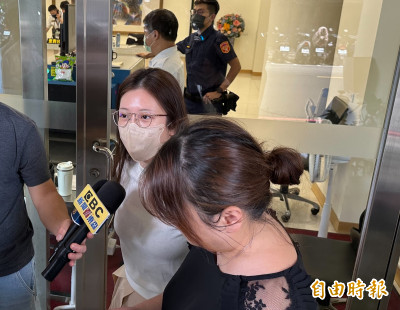《TAIPEI TIMES》Legislators quiz nominee Huang

Former minister of education Huang Jong-tsun, who has been nominated to be president of the Examination Yuan, answers lawmakers’ questions at the Legislative Yuan in Taipei yesterday. Photo: Peter Lo, Taipei Times
By Sean Lin / Staff reporter
Former minister of education Huang Jong-tsun (黃榮村) yesterday told lawmakers that he would support any effort to move the nation toward a sounder constitutional system, including abolishing the Examination Yuan, if he were to be confirmed as its head.
Huang, who was nominated by President Tsai Ing-wen (蔡英文) to be Examination Yuan president, made the remark as the Legislative Yuan in Taipei reviewed his nomination.
Abolishing the Examination Yuan and the Control Yuan has been advocated by many people for a long time, and he would support any effort aimed at boosting the government’s efficacy and improving the nation’s constitutional system, Huang said in his speech.
If the decision was made to abolish the Executive Yuan, he would not seek to cling to his post, but would draft measure to phase it out, while ensuring that its functions of designing civil service entrance tests and evaluating civil servants’ performances be continued, he said.
Traditional paper tests alone cannot meet the needs of society and the government for capable civil servants, so he would take into account the challenges civil servants would encounter on their jobs, their mobility between different fields and whether they have an international perspective, he said.
He would evaluate the need for a two-step entrance test process for civil engineers and other professions concerned with public safety by requiring them to obtain a general license before passing specialized tests administered by professional associations, he said.
The single-track testing system for civil servants, researchers and teachers is no longer “appropriate,” he said, adding that the rules should be amended to separate the testing of the three professions, which would improve the nation’s competitiveness.
During a question-and-answer session with Democratic Progressive Party Legislator Wang Ting-yu (王定宇), Huang was asked whether he would support the inclusion of Taiwanese history as a subject in civil service tests.
Civil servants handling Hakka or Aboriginal affairs are required to take tests on Hakka and Aboriginal history, but those testing for positions in other agencies are not required to be tested on the nation’s history, Wang said.
If civil servants are familiar with the nation’s history, it would significantly benefit their jobs and the nation’s development, he said.
A civil servant concerned with building roads or dams could not do their job well if they did not know the history of a locality, he said.
Huang said that he supports including tests on the nation’s history if the responsibilities associated with a position would benefit from such a move, adding that he would look into the matter.
Taiwanese history could also be included as part of the training program for newly hired civil servants before they are assigned their first jobs, he added.
新聞來源:TAIPEI TIMES


















